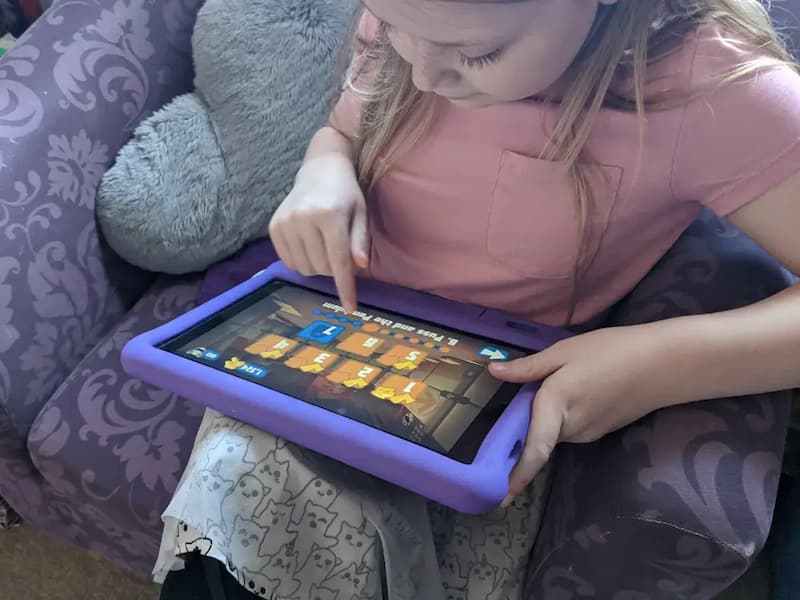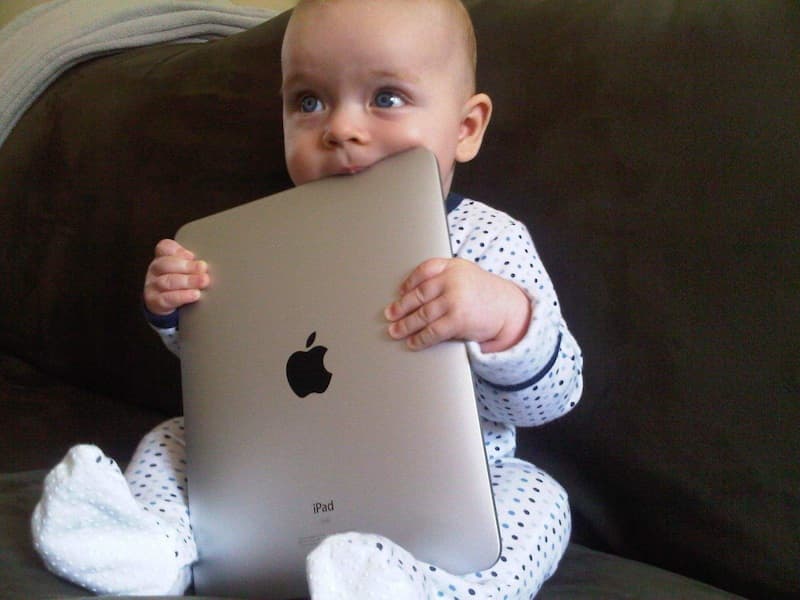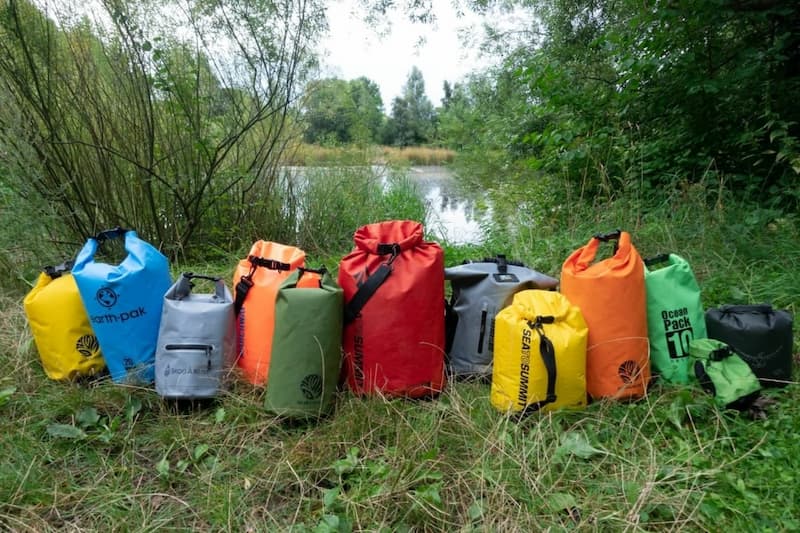Let’s discuss the subject: what is an iPad kid?
An iPad kid is a child who is essentially plopped down in front of an iPad to prevent bothering their parents, rather than getting to play with actual toys, go outside, or interact with other kids their age. So many parents see absolutely no issue with this.
Let’s read on.
Table of Contents
What Is An iPad Kid?
Most people recall going on bike rides, jumping rope, and making adventure games when they reflect on their youth. Teenagers today, or “iPad kids,” will have memories that are very different from previous generations.
The term “iPad kid” was created by TikTok users to refer to toddlers and young children who are frequently seen in front of their tablets or iPads. These teenagers exhibit awkward social behaviors, food-stained fingers, and devices with food or fingerprints on them.
The Pros Of iPads For Kids
In addition to being a fun toy that you can carry around in your bag, some studies show that the iPad may actually help young children learn. Some apps may help children’s vocabulary and math skills, according to research supported by the Joan Ganz Cooney Center at Sesame Workshop. There is evidence that iPad apps can improve social interaction and language use in kids with cognitive delays.
While too much screen time is always a concern for parents since it has been linked to attention and conduct problems in children, a 2013 study published in the Archives of Disease in Childhood found that digital games (which are interactive and can foster creativity) seem to affect children differently than TV, which isn’t usually interactive. Age-appropriate digital games did not raise a child’s risk for behavioral issues, contrary to the researchers’ earlier findings that excessive TV viewing did.
Of course, kids can also have pure fun using iPads. If you wouldn’t feel bad about letting your toddler enjoy a game like Candy Land, why would you feel bad about letting her enjoy the Candy Land app on your iPad?

The Pitfalls Of iPads For Kids
Even though iPads for kids may have some advantages, you shouldn’t let your child use one for extended periods of time or place a screen in front of her face whenever she’s waiting somewhere since doing so will prevent her from learning how to pass the time by using her imagination and thoughts.
Remember that iPad use shouldn’t replace other toys, games, physical activity, imaginative play, or face-to-face social interaction. A screen, after all, provides a constrained sensory environment and no physical activity.
The way your child can feel her stuffed animal or her play clothes is very different from how she can feel an app. She can smell the cookies you bake together, but she can’t smell an app. She is unable to manipulate an app the same way she can handle and stack Legos or blocks. She can’t play in the outdoors like she can when she runs with an app, and she can’t connect with you like she can when she hugs you. Your toddler can use her body, interact with her environment, and learn about social interactions through all of these real-world activities. You don’t have to feel bad about allowing her to use your iPad in moderation, but you should make sure it’s just one of many things she does to explore, learn, and have fun.
Guidelines
The American Academy of Pediatrics (AAP) recommendations for other screen time apply most effectively when it comes to children and iPads. The AAP advises delaying exposure to digital media (including TV, computers, and video games) until your child is between 18 months and 2 years old, unless they are video chatting. Children between the ages of 18 months and 2 years can watch digital media with you, but children between the ages of 2 and 5 should only spend an hour per day in front of a screen.
Conclusion
Keep screens out of your child’s bedroom because they are stimulating and can disrupt sleep. You should also watch what your child watches and uses on her devices to ensure that the content is appropriate. Finally, you should talk to your child about the apps and programs she is using. For advice from researchers and experts in digital media, visit Common Sense Media.
Regarding your reading, I thank you.


![What Is Gran Lungo? The Ultimate Guide [Must Read]](https://www.searchforbuy.com/wp-content/uploads/2022/08/What-Is-Gran-Lungo-Have-A-Try.jpg)
